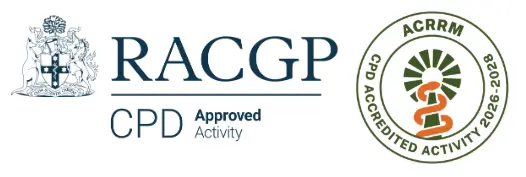Maternal Sepsis - what you need to know | World Sepsis Day 2024
Maternal sepsis accounts for a significant portion of maternal morbidity in Australia, second only to cardiovascular disease. With an incidence rate of around 1-2 cases/1000 deliveries and the 2nd highest cause for all maternal deaths, First Nations women and those living in rural and remote areas face higher risks due to disparities in healthcare access with women from lower socioeconomic backgrounds more susceptible due to barriers in accessing timely and adequate prenatal care. Efforts to improve early detection and management of maternal sepsis are essential to reduce the impact on maternal health outcomes in Australia.
We continue our free World Sepsis Day webinar series focusing on Maternal Sepsis. This special session will utilise case-study examples including a focus on our most vulnerable patients, looking at:
-
The risks for maternal sepsis
-
-
Pre-existing medical conditions such as diabetes, hypertension, or immune system disorders.
-
Specific infections such as urinary tract infections, pneumonia, or untreated Group B Streptococcus.
-
Invasive procedures during pregnancy or childbirth, such as caesarean sections.
-
Individuals with poor access to prenatal care or those from socioeconomically disadvantaged backgrounds.
-
-
Prompt identification and diagnosis utilising clinical assessment and diagnostic tools
-
Antibiotic therapy explaining the role of antimicrobial stewardship, and early administration to reduce mortality
-
Supportive care including fluid resuscitation, vasopressors and the role of lactate
Learning Objectives:
-
Identify and describe at least three key risk factors for maternal sepsis
-
Apply modified qSOFA tool and clinical assessment data to identify and diagnose maternal sepsis via simulated case study examples
-
Explain the role of antimicrobial stewardship and early, targeted antibiotics to reduce sepsis mortality
-
Identify appropriate supportive care including oxygen therapy, fluid resuscitation and vasopressor support to simulated case studies to improve patient outcomes
Who Should Attend?
-
Registered Nurses & Midwives working in ED, ICU and maternity services
-
General Practitioners providing ant-natal and postnatal care
-
Rural and remote clinicians including retrieval services
-
Paramedics
Why Attend?
To gain a better understanding of the risk factors of maternal sepsis, improve early recognition and management to prevent maternal morbidity and mortality.
This webinar is presented by our Head of Education Susie Helmrich who is a member of the Global Sepsis Alliance and has been providing sepsis education to clinicians for World Sepsis Day since its commencement in 2012.
Testimonials from course participants
"Engaging and thoughtful presentation. The case study at the beginning really highlighted the importance of early recognition and treatment with sepsis."
"The lecturer was engaging and knowledgeable and delivered the information well. The slides were also well thought out. The case studies very relevant; the first one had me in tears. Thank you I really got a lot out of the presentation."
"Highly relevent as working in setting with mainly Aboriginal clients with other risk factors. Important info given in straightforward way. Links to other relevent resources included, much appreciated."
"It was a concise overview of the topic with great examples and videos to help learning, the presenter explains the topic extremely well. I have learnt a great deal by attending."
This course is formally accredited with RACGP and ACRRM.
RACGP Activity ID: 946783
ACRRM Activity ID: 34276

Recorded Webinar
Duration: 1 hour
Educational Activities: 1 hours
Program Level Requirements: Culturally Safe Practice, Health Inequities
Areas Of Interest: Critical Care, Emergencies, General Practice, Obstetrics, Womens Health
Medical Practitioners, Midwifes, Nurses, Nurse Practitioners, Paramedics
Or follow us on social media
All your CPD in one easy membership.
From $35/month
- All your CPD
- 100+ hours of premium courses
- Exclusive content

